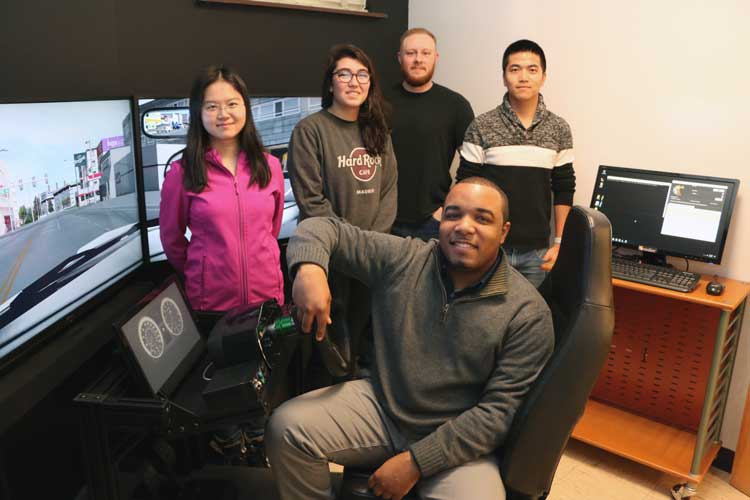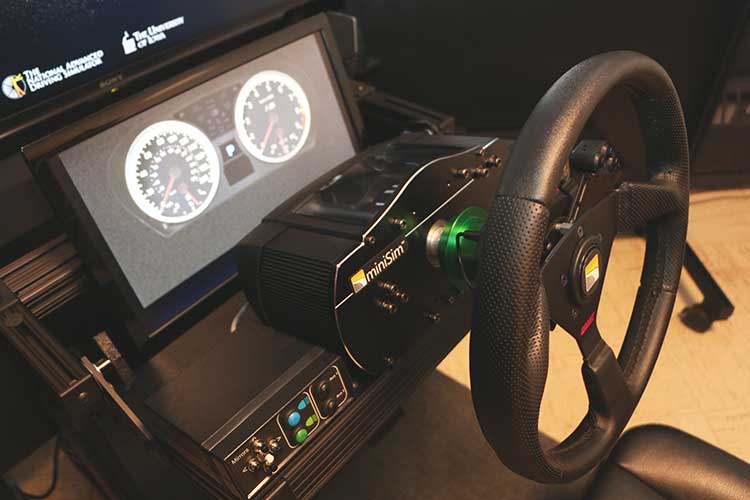New lab facilities for new professor
New lab facilities for new professor

<em>(l to r) Pitts Group in miniSim lab: (seated) Asst. Prof. Brandon Pitts; (standing l to r) Yuyuan Liu, Ilayda Karagoel, Matt Scott, and Gaojian Huang</em>
Purdue IE's newest professor, Brandon Pitts, moved into a newly-renovated lab complete with the latest driving simulator to support human factors research.
Pitts, an assistant professor in industrial engineering, joined Purdue IE in January 2016. His new lab is called the Next-generation Human-systems and Cognitive Engineering (NHanCE) Research Laboratory.
"The first goal of the NHanCE Research Lab is to enhance the performance of operators in complex environments, such as driving, aviation, and healthcare," says Pitts. "Our second goal is to enhance interactions with daily technologies. Both of these goals will be achieved through improved interface design. Our group has primary interest in aging populations, as they represent the fastest-growing age group in the U.S., and are expected to interact with more advanced technologies throughout later stages of life."
Pitts' plans for his lab are to conduct controlled experiments and observations to better understand needs and expectations, quantify interactions, and develop interventions to support good operator performance in a wide range of human-machine systems.
To do this, in January he moved into newly-renovated space in Michael Golden Labs (MGL) 1311. Two weeks ago a new National Advanced Driving Simulator (NADS) "miniSim" driving simulator arrived and was installed. This medium-fidelity research tool allows customization of various driving situations and scenarios in order to conduct driving-related research projects. The lab has space for four to five graduate and undergraduate students in the main area, and a separate smaller room exclusively for conducting human-subject experiments using the miniSim.
The lab will further IE research in several ways. "As the shift towards autonomous driving and systems, in general, becomes more prevalent in coming years, there are several unanswered questions regarding how humans will interact with such technology, especially from a human factors perspective," explains Pitts. "To this end, our research lab and driving simulation capabilities will enable us to not only explore and answer important questions, but also lead efforts in providing data to help make informed decisions about the development of these future systems."
Pitts is enthusiastic about how this will benefit IE students. "As part of their degree program, students will receive training in the design of experiments, sensing techniques, computer programming, and data analytics," he states. "They will also acquire knowledge needed to carry out human-subject studies from beginning to end. Finally, students will gain experience with identifying and taking steps toward solving real-world problems."
Pitts is also a Faculty Associate at the Purdue University Center on Aging and the Life Course.
Writer: DeEtte Starr, starrd@purdue.edu
Image Gallery


miniSim wheel